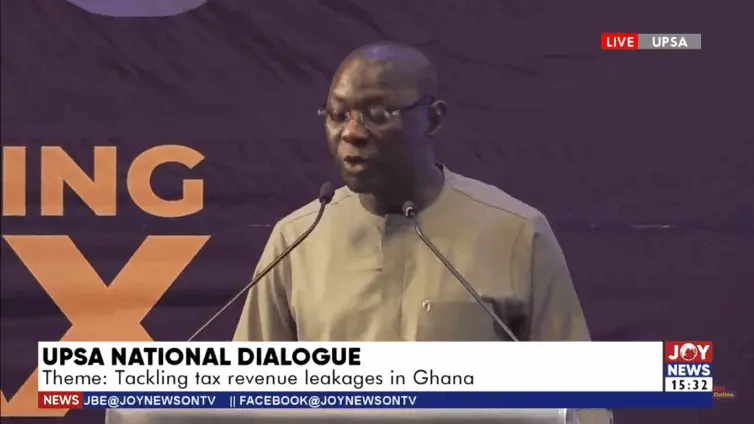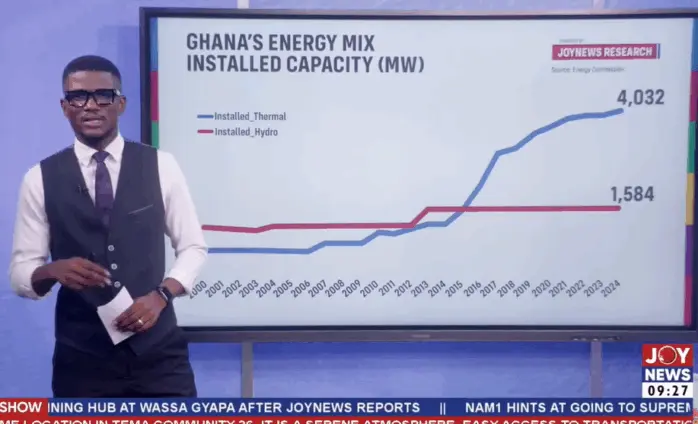In an increasingly turbulent global economic landscape, the specter of trade wars looms large, fueled by escalating tariffs imposed by nations like the United States. The potential repercussions of these trade disputes are causing concern in many developing countries, including Ghana. Dr. Mohammed Amin Adam, the former Finance Minister, recently addressed this critical issue at the UPSA National Dialogue, providing valuable insights into the potential impact of US tariffs on the Ghanaian economy. His message was clear: Ghana should avoid engaging in retaliatory tariffs, which could undermine its economic recovery.
Dr. Adam’s address served as a stark warning against reciprocal tariffs, emphasizing the potential for negative consequences. He argued that participating in a Ghana trade war with the US would be detrimental to Ghana’s long-term economic interests and stability.
Why Ghana Should Avoid a Trade War with the US
At the UPSA National Dialogue, Dr. Adam cautioned against imposing reciprocal tariffs in response to US trade policies. “We are in the era of trade wars because of the tariffs imposed by the United States of America,” he stated. He explained that US tariffs have the potential to make Ghanaian exporters less competitive in the US market, ultimately leading to lower tax revenue for Ghana. Dr. Adam stressed that entering into a Ghana trade war would only exacerbate these challenges.
The Limited Impact of US Tariffs on Ghana
While acknowledging the global impact of US trade policies, Dr. Adam pointed out that the direct impact of US tariffs on Ghana’s exports is relatively limited. “Our total export to the US is about 2% of GDP, with non-exempt exports under the new US tariffs standing at 0.4%,” he explained. Because of this small percentage, Dr. Adam believes the impact on Ghana’s international trade position would be manageable, if handled correctly. Entering into a Ghana trade war, he warned, would not be the correct approach.
The Danger of Counter-Tariffs
According to Dr. Adam, the greatest risk lies in Ghana’s potential response to US tariffs. “A reciprocal tariff on imports from the US will increase the cost of US exports to Ghana,” he cautioned. Ghana has a strong demand for imported goods, including those from the US. Imposing counter-tariffs would increase the price of these goods, potentially reducing disposable income for Ghanaian consumers. “Given the obsession in Ghana for imported products, this will reduce the disposable income of Ghanaians, thus leading to lower consumption and lower tax revenue,” Dr. Adam stated. This decline in consumption and tax revenue could have a significant negative impact on Ghana’s economic recovery.
Maintaining a Stable Trade Environment
Dr. Adam emphasized the critical importance of maintaining a stable trade environment for Ghana’s long-term economic interests. Escalating trade tensions with major trade partners, such as the United States, should be avoided whenever possible. He urged policymakers to carefully consider the potential consequences of any trade-related decisions. His concluding thoughts reiterated that the benefits of avoiding a Ghana trade war would far outweigh any perceived gains from retaliatory measures.
Conclusion
Dr. Mohammed Amin Adam’s warning against retaliatory tariffs underscores the potential risks of a Ghana trade war with the US. He emphasized the limited direct impact of US tariffs on Ghana, while highlighting the dangers of counter-tariffs, which could negatively affect Ghanaian consumers and reduce tax revenue. Ghana’s economic stability depends on prudent trade policies that prioritize a stable and predictable trade environment. For more information on Ghana’s trade policies, please visit the Ministry of Finance website. You can also find details of the UPSA National Dialogue.
Image Source: MYJOYONLINE





















